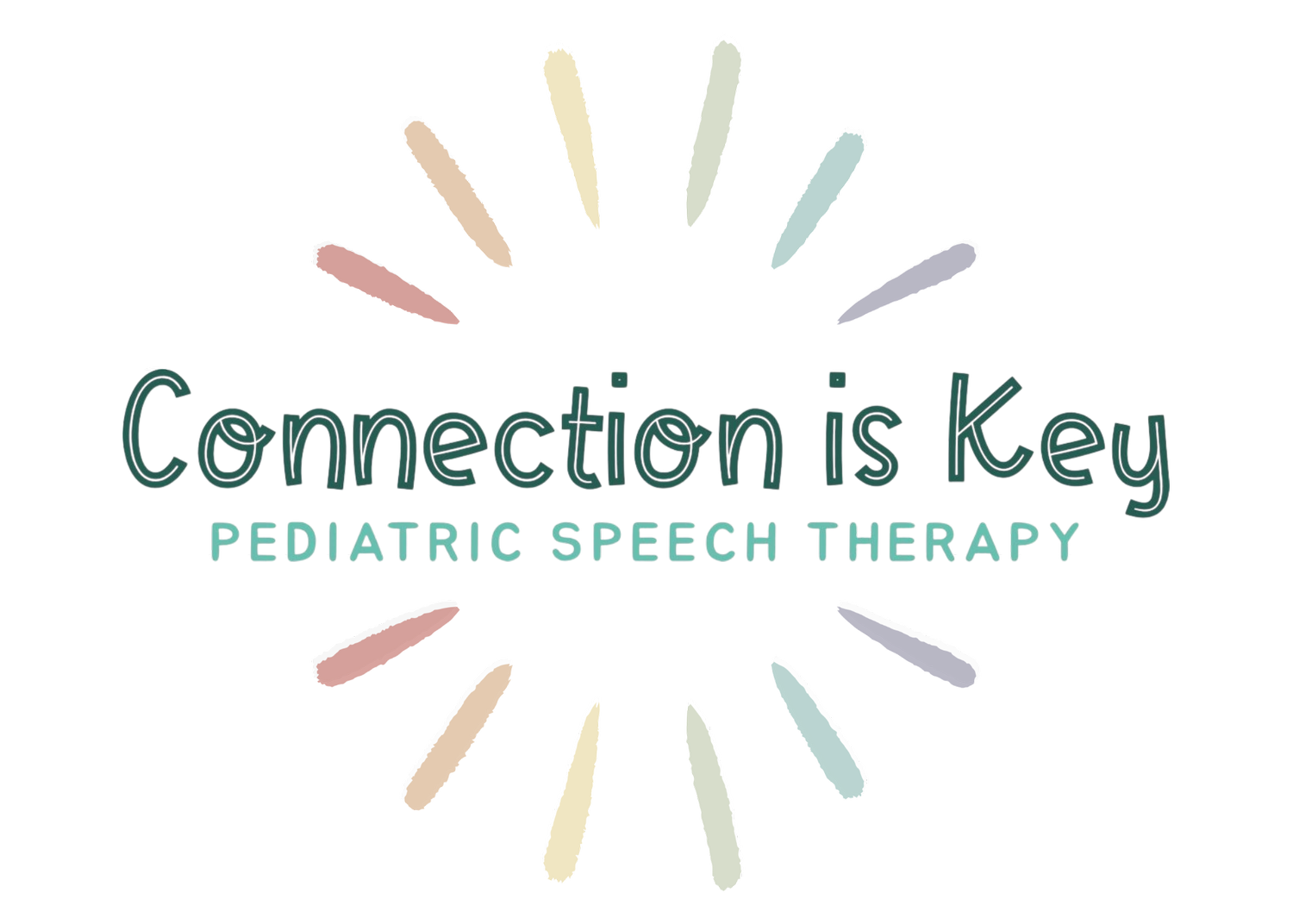Frequently Asked Questions
-
Connection is Key Pediatric Speech Therapy is currently an out-of-network provider. Full payment is made directly by families at the time of service. Upon request, we can provide a superbill— an itemized invoice that families may submit to their insurance company for possible reimbursement depending on their out-of-network benefits. Using a superbill allows your child to receive personalized, consistent speech therapy without the limitations that can come with insurance. Together, you and your therapist can set goals and adjust treatment based on your child’s unique needs— not on what insurance approves or deems "medically necessary." There are no delays, session limits, or risks of denial based on diagnosis. Families are responsible for contacting and communicating with their insurance provider to verify coverage and determine eligibility for out-of-network reimbursement. Connection is Key Pediatric Speech Therapy does not guarantee reimbursement and encourages families to discuss their specific plan details with their insurer.
-
Every child develops at their own pace, but if you're concerned about how your infant, toddler, or elementary school-aged child is communicating, it’s worth exploring further. If you are unsure whether your child is meeting speech-language milestones, it is perfectly okay to ask questions and seek the guidance of a licensed speech-language pathologist. If your child isn’t meeting speech or language milestones, early action and support is always better than waiting. A licensed speech-language pathologist can provide guidance on whether or not a speech-language evaluation would be beneficial and then create an individualized treatment plan if deemed necessary.
-
Yes— absolutely!
Even if your child did not qualify for Early Intervention or school-based services, they may still benefit from and qualify for private speech-language therapy. Early Intervention and school-based services are required to follow specific eligibility criteria that include a child having a significant delay in their speech and/or language or require that the needs are adversely impacting their educational success. If you have concerns about your child’s speech, language, or communication— even if they didn’t qualify elsewhere — private speech therapy can still help. An evaluation by a licensed speech-language pathologist can determine whether support is recommended and create a personalized treatment plan for your child.
-
If you're interested in learning more about the evaluation and therapy process and seeing if our speech-language therapy services are the right fit for your child, please contact us by phone or email to schedule a free consultation call. Through the free consultation call, we will be able to determine if an evaluation is recommended.
From there, we will schedule the initial evaluation. Based on the results of the evaluation and if deemed necessary, a plan of care (e.g., therapy recommendations - frequency/duration, goals, etc.) will be created. Once that is complete, speech therapy services will be scheduled.
-
After our free consultation, you’ll receive a questionnaire to fill out about your child’s current communication skills. This helps us get to know your child better before their evaluation. The evaluation itself is relaxed and child-friendly, and it takes place in a setting where your child feels comfortable— either at home or in their daycare. Whether your child is an infant, toddler, or school-aged, the evaluation is always tailored to their age and needs.
-
Review the information you shared in the intake form
Spend time observing and interacting with your child through play, games, and/or conversation
Use standardized assessment tools– if appropriate for your child’s age and ability
The goal is to understand how your child uses and understands language, how clearly they speak, and what areas might need support. This information helps us create specific goals and a personalized therapy plan to help your child grow and communicate with confidence.
-
Every speech therapy session is designed to be engaging, authentic, meaningful and individualized to your child’s unique way of learning. Using a neurodiversity-affirming approach, the speech-language pathologist (SLP) focuses on supporting communication in a way that honors your child’s strengths, interests, and individual differences.
-
Child-Led & Play-Based: Sessions are guided by your child’s interests. Whether they love blocks, pretend play, books, or movement, therapy activities are built around what they enjoy most.
Strengths-Focused: The SLP looks at what your child can do and builds on those abilities to support areas that need growth— boosting confidence while making progress.
Multi-Sensory & Sensory-Supportive: Activities may include visuals, movement, touch, and/or sound to support different learning styles and keep your child regulated and engaged. Sensory supports, tools, and/or breaks are used as needed to help your child feel safe, connected, and focused.
Motivating & Meaningful: Goals are worked on through real-life, meaningful activities your child finds fun and motivating— like playing social games, movement activities, playing with objects/toys that are of interest, reading books, etc.
Flexible & Responsive: No two sessions look exactly the same! The SLP adapts based on your child’s mood, energy level, and needs that day— whether it’s more active play or calm, quiet connection.
Therapy can take place in the comfort of your home or at your child’s daycare, making it easier for them to learn, practice, and generalize skills in familiar, natural environments.
-
Yes— absolutely! As a parent or caregiver, you play a key role in your child’s communication journey. Your speech-language pathologist truly values and loves partnering with families. Therapy is most effective when it’s a team effort— and that includes you.
-
Share helpful strategies and tips with you that you can use during everyday moments like meals, bath time, or play
Encourage observation of and participation in speech therapy sessions
Empower parents/caregivers to be active participants in supporting their child's speech and language skills
Offer ongoing support, coaching, and education
Your insight, encouragement, and daily involvement make a big difference. The goal is to help you feel empowered and confident so you can support your child not just during therapy sessions but in all the meaningful moments you share together.
Still have questions?
Contact us, and we will be happy to answer your questions!
